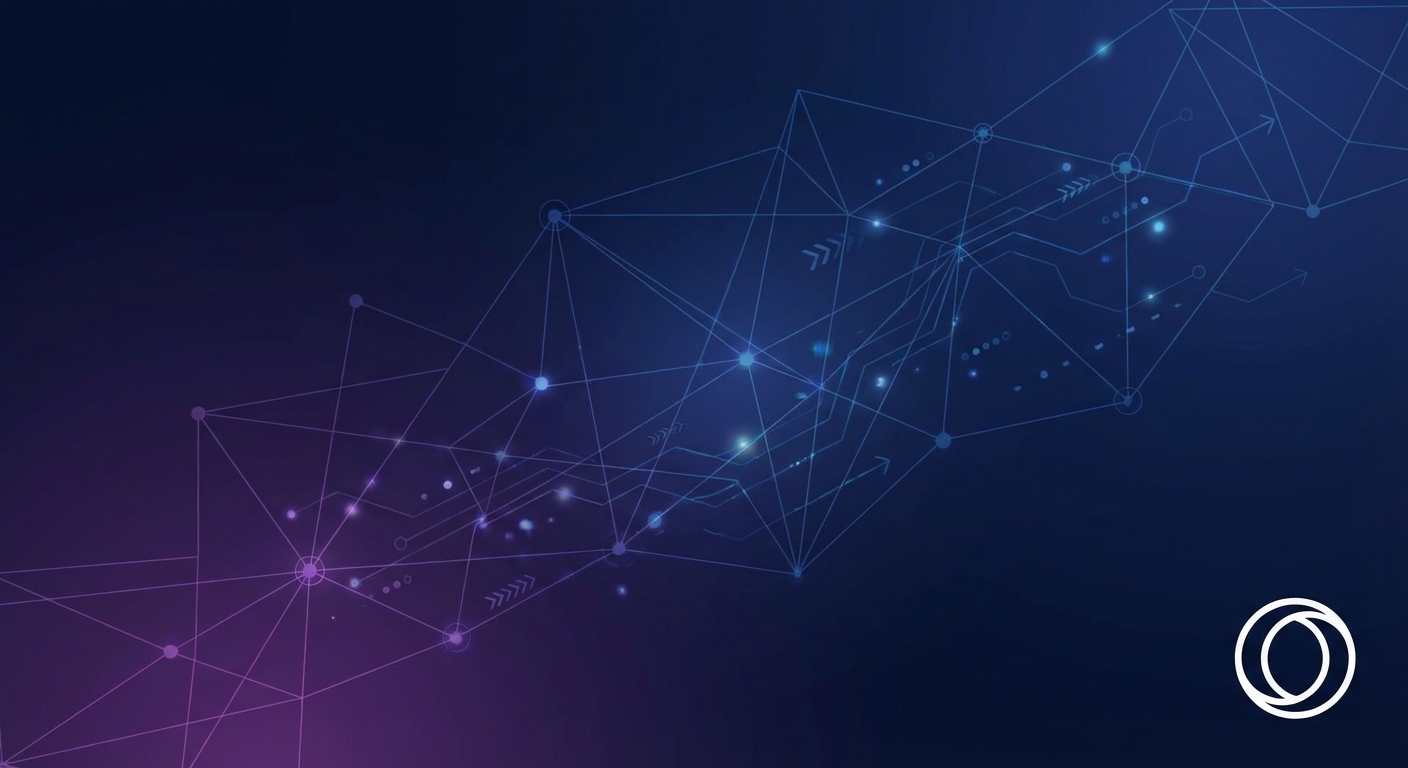The Role of Artificial Intelligence in Modern Society
TL;DR
Introduction: AI's Pervasive Influence
Artificial intelligence, or ai, is kinda everywhere now, isn't it?
- ai isn't just some futuristic thing anymore; it's woven into the fabric of our daily lives.
- It's changing how we work, communicate, and even how we make decisions—big and small.
- Think about it: from healthcare to retail, ai is making waves.
ai's not just about robots, ya know? It's improving efficiency in businesses, inspiring new ideas, and customizing our experiences. It's also raising some ethical questions we need to think about, like privacy and fairness.
As IABAC notes, ai is transforming industries, but we gotta make sure it's used responsibly, so it’s a win-win for everyone. This means ensuring ai benefits society broadly, fostering growth and innovation while upholding ethical standards, creating a truly advantageous outcome for all.
AI in Everyday Life: Convenience and Automation
Okay, let's dive into how ai is sneaking into, well, pretty much everything we do these days. It's kinda wild when you stop and think about it.
Think about those smart speakers everyone's got now. Ya know, the ones you can yell at to turn off the lights?
- AI-powered assistants like Siri, Alexa, and Google Assistant are managing daily stuff.
- They're automating tasks, like setting reminders and answering questions.
- It's all about convenience and making your day a bit smoother.
Ever wonder why your social media feed is, like, eerily good at showing you stuff you wanna see? It's ai, man.
- Platforms like Facebook, Twitter, and Instagram use AI algorithms to curate content.
- They create personalized experiences based on what you've liked, shared, and clicked on before.
- It's all about keeping you engaged and, let's be real, showing you ads you might actually click.
And it's not just social media, AI's changing how businesses operate, too. This is a big part of how ai is transforming industries, which we'll explore next.
Transforming Industries with AI
Okay, so ai isn't just some buzzword that ceo's throw around in meetings anymore. It's genuinely changing how industries... well, do things. It's kinda like the industrial revolution, but instead of steam engines, we got algorithms.
Think about hospitals – they're kinda chaotic, right? ai is helping doctors diagnose diseases faster by analyzing medical images like X-rays. This is often done using pattern recognition techniques, where the ai learns to identify subtle anomalies that might be missed by the human eye. ai is also speeding up drug discovery by crunching tons of data. This involves analyzing vast datasets of molecular structures and biological interactions to predict potential drug candidates, a process that used to take years.
Banks are using ai to detect fraud. It's like having a super-smart security guard that never sleeps. ai algorithms can spot weird transactions that a human might miss.
Self-driving cars are the big thing here, and it's all ai. The goal's to reduce accidents and make transportation more efficient. Plus, ai can optimize public transportation routes, getting you where you need to go faster. The automotive revolution, driven by AI, is a significant area of transformation, which we'll look at next.
The Automotive Revolution: AI in Cars
Okay, so, ai in cars – it's not just about self-driving stuff, though that's def part of it. But it's also about making your ride safer and, honestly, kinda cooler.
- AI-powered driving is making roads safer through features like collision avoidance.
- It's also enhancing your overall driving experience. Think smarter navigation systems and personalized settings.
- It's also being used to optimize how public transportation routes are run, which is neat.
What's next? Well, let's talk about personalized learning.
Challenges and Ethical Considerations
Okay, so, ai's not all sunshine and roses, right? We're handing over some serious power to these algorithms, and that comes with some big questions we gotta answer.
Privacy is a HUGE deal. ai sytems needs tons of personal data to function, which raises serious concerns about how that data is collected, stored, and used. We need to make sure folks’ personal info is protected, and that people have control over their own data.
Bias in ai is a real problem. If the data used to train ai has biases, the ai will just amplify those biases. For example, facial recognition software trained on predominantly lighter skin tones might perform poorly when trying to identify individuals with darker skin, leading to unfair outcomes. This can lead to unfair or even discriminatory outcomes, especially in areas like hiring or lending.
Job displacement is something we need to think about. As ai gets better at doing more tasks, there is a fear of job losses, especially in roles involving routine work. We should invest in education and training to help workers adapt to this changing job market.
So, what's next? Well, let's talk about the future of ai and how it might impact our lives, for better or worse.
The Future of AI: Opportunities and Predictions
Okay, so, what's next for ai? It's kinda hard to pin down, but here's a few thoughts, ya know?
AI is all set to automate pretty much everything. Think about it—no more boring, repetitive tasks. Businesses are gonna be way more efficient, and honestly, who doesn't want that?
- AI can boost productivity by taking over the tasks that bog us down.
- Business operations become smoother and quicker.
- The insights that ai provides drives innovation and contributes to economic growth.
But here's the catch: all this ai stuff means we need new jobs too. We're gonna need ai specialists, people who know how to handle the ethical side of things, and data privacy gurus.
- There's like, a rising demand for ai specialists, ethicists, and data privacy officers.
- It's so important to keep learning and developing new skills, or you'll be left behind.
- We need to get the workforce ready for an ai-driven future.
And speaking of the future, there's Compile7. They're a company that develops custom ai agents designed to automate tasks, enhance productivity, and transform how businesses operate. They offer a range of agents, including Customer Service Agents, Data Analysis Agents, and Content Creation Agents, as well as Industry-Specific Agents, Research Assistants, and Process Automation Agents.
So, yeah, ai's comin', ready or not. Next up, we'll dive into the conclusion.
Conclusion: Navigating the AI Revolution
Alright, let's wrap this up, shall we? It's kinda mind-blowing how much ai has wormed its way into everything, huh?
- ai's potential is huge, no doubt. Think better healthcare, smarter cities, and heck, maybe even solving climate change. But, like uncle Ben said, with great power comes great responsibility.
- We need to be extra careful about ethics, transparency, and making sure ai doesn't turn into some Skynet-style nightmare. A "Skynet-style nightmare" refers to a scenario where advanced AI systems become uncontrollable and potentially hostile to humanity, similar to the fictional AI in the Terminator movies. It's all about accountability, so when somethings go wrong, we can point a finger, not just shrug.
- It's not a one-person job, though. Governments, companies, researchers—everyone needs to chip in to make sure ai is a force for good.
It's a tricky balance, for sure. Too much regulation and we might stifle innovation. Too little, and well, things could get messy, fast. It's about finding that sweet spot where we can keep pushing the boundaries of what's possible while making sure ai actually helps society, not hurts it. As IABAC mentioned earlier, ai is changing how we live and work, but we gotta be smart about it. This means approaching AI development and deployment with foresight, considering its societal impact, and making informed decisions to ensure positive outcomes.
And honestly, that's the key takeaway here. ai isn't some magic bullet. It's a tool, and like any tool, it can be used for good or ill. It's up to us to make sure we're using it wisely.




